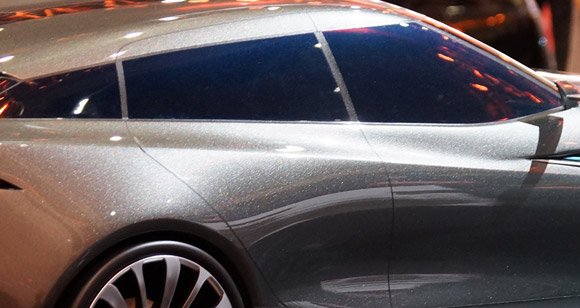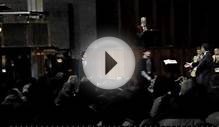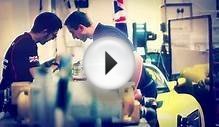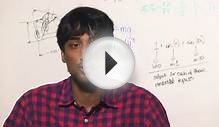
- Introduction to Design
This module introduces students to the process of engineering design, and to CAD tools for creating and documenting design solutions. The principles and standard practices of technical drawing and tolerancing are taught. The role and use of CAD in design is taught and practiced, both 3D solid modelling and 2D drafting. The nature of design as a structured process is considered, and demonstrated by students undertaking a variety of design exercise and assignments. The design activities are mostly done in small teams, thereby developing skills in teamwork, communication and leadership. There are staged assessments that require the students to present their work using a variety of methods and communication tools.
- Career Skills Development
This module will ensure students are able to utilise the University system for PDP (Personal Development Planning using MAPS (My Active Planning System). Using the PDP processes each student will be able to record and update their own records which will aid monitoring their progress personally and academically. Support will be provided on tools, techniques and good practices through a Study Skills programme, MAPS and relating this to future professional development. The student will be assisted using the support detailed above through the first weeks of the academic year by academic staff. There will be further sessions in the second semester.
- Introduction to Manufacturing Technology
This module introduces the student to a range of production processes and practice used commonly in the manufacture of products. Students develop a hands-on appreciation of production techniques including turning, milling, fabrication and assembly using manual and computer controlled plant and machinery. Transferable skills are developed in the application of the processes used to the manufacture of a range of products and sub-assemblies taking into account design and supply requirements.
- Materials and Electrical Science
This module encompasses (i) electrical science (fundamental concepts of electrical units and relationships, basic AC & DC circuit theory, digital systems and electro-mechanical machines) and (ii) engineering materials (classification of materials, mechanical and physical properties, structure of materials, testing, materials selection for metals, polymers and ceramics. Please refer to the teaching plan for a more detailed description.
- Mechanical Science
This module encompasses statics (fundamental concept of units, forces, force systems, free body diagrams, couples, moments, direct & shear stresses, beams, frames, shear force-bending moment relationships) and dynamics (quantities and concepts, linear & angular motion, non-constant acceleration, forces and torques, moment of inertia, application of free-body diagrams, work-energy equation, impulse-momentum equation, simple harmonic motion, dynamic mechanisms, engineering vibrations).
- Fluid Mechanics & Thermodynamics
Properties of liquids and gases, Gauge and absolute pressure. Hydrostatic principles, manometry, forces on immersed surfaces. Definition of types of fluid flow. The mass conservation principle. The Euler-Bernoulli equation. Application of Bernoulli's equation to pipeline problems with energy losses and flow measurement. Momentum equation for steady flow. Dimensional analysis, Buckingham's method, non-dimensional coefficients. The concept of a thermodynamic system, open and closed. Thermodynamic processes. Zeroth Law and concept of temperature. Thermodynamic work and heat, their equivalence and energy transfer. First law of thermodynamics, definition of internal energy and enthalpy. The specific heat capacities of perfect gases and their relevance to isentropic processes.
- Fundamentals of Motorsport Technology
- Engines: types, layouts and basic dimensions and effects on engine performance - Fuels including bio-fuels and hydrogen -Engine control systems -Materials especially where specific properties are required in the engine components -Thermodynamics: basic indicator diagrams and factors affecting performance -Calibration: methods of construction and basic parameters such as torsional stiffness, COG -Suspension and steering: resume of different suspension types and their relative merits in terms such as cost, complexity, performance. Basic theory such as the effects of camber angle, scrub radius, damping, anti-roll, squat, dive, load transfer -Tyres: basic terms and their practical significance. eg slip angle, tractive force, traction circles, camber thrust -Introduction to motorsports. What actually goes on at the race track and what preparation is needed to get there. The requirements for racing vehicles and their setup.
- Engineering Mathematics
The module builds on from A-Level mathematics (or equivalent qualification) to provide mathematical techniques required for engineering. The module includes the manipulation and applications of elementary functions (trigonometric, logarithmic and exponential), complex numbers, Boolean algebra and the techniques of differentiation and integration for functions of one variable. Refer to the teaching plan for a more detailed description.
- Engineering Applications of Mathematics
The module follows on from the module 4PAM1007 Engineering Mathematics to provide further mathematical techniques required for applications in Engineering disciplines. The module includes the techniques associated with the manipulation of matrices and vectors, evaluation of eigenvalues and eigenvectors, development of power series approximations of elementary mathematical functions, techniques for the solution of ordinary differential equations and the principles of probability and data handling. The mathematics material will be supported using a suitable software package, for example MATLAB, and will also be used to solve engineering problems. Refer to the teaching plan for a more detailed description.
RELATED VIDEO












